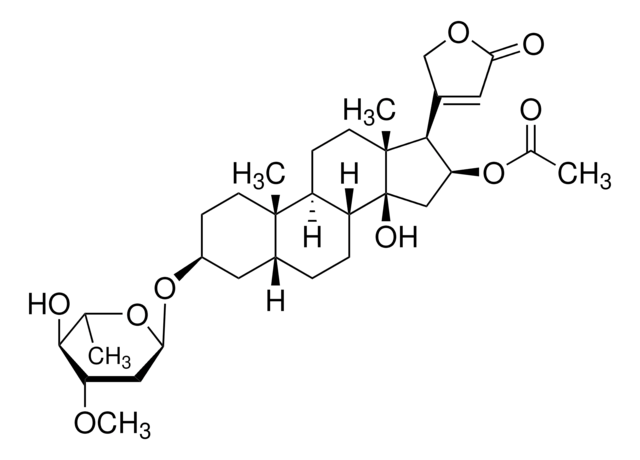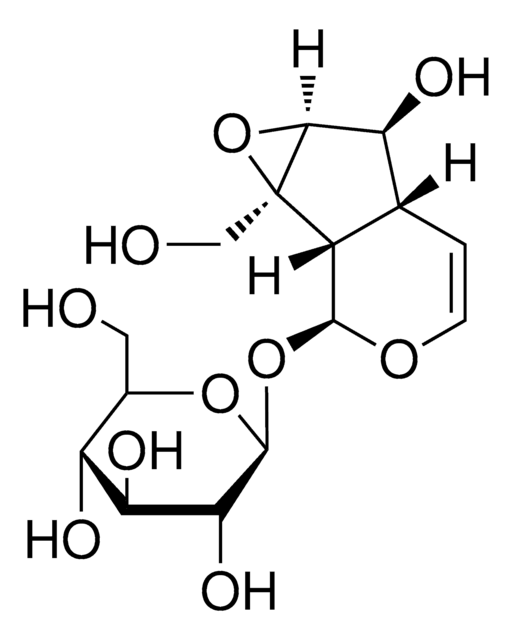SMB00079
Ricinine
≥95% (LC/MS-ELSD)
Synonyme(s) :
Recinine, Ricidine, Ricinin, Ritsinin
About This Item
Produits recommandés
Pureté
≥95% (LC/MS-ELSD)
Forme
solid
Application(s)
metabolomics
vitamins, nutraceuticals, and natural products
Température de stockage
−20°C
Chaîne SMILES
COC1=C(C#N)C(=O)N(C)C=C1
InChI
1S/C8H8N2O2/c1-10-4-3-7(12-2)6(5-9)8(10)11/h3-4H,1-2H3
Clé InChI
PETSAYFQSGAEQY-UHFFFAOYSA-N
Description générale
Actions biochimiques/physiologiques
Mention d'avertissement
Danger
Mentions de danger
Conseils de prudence
Classification des risques
Acute Tox. 3 Oral
Code de la classe de stockage
6.1C - Combustible acute toxic Cat.3 / toxic compounds or compounds which causing chronic effects
Classe de danger pour l'eau (WGK)
WGK 3
Point d'éclair (°F)
Not applicable
Point d'éclair (°C)
Not applicable
Certificats d'analyse (COA)
Recherchez un Certificats d'analyse (COA) en saisissant le numéro de lot du produit. Les numéros de lot figurent sur l'étiquette du produit après les mots "Lot" ou "Batch".
Déjà en possession de ce produit ?
Retrouvez la documentation relative aux produits que vous avez récemment achetés dans la Bibliothèque de documents.
Notre équipe de scientifiques dispose d'une expérience dans tous les secteurs de la recherche, notamment en sciences de la vie, science des matériaux, synthèse chimique, chromatographie, analyse et dans de nombreux autres domaines..
Contacter notre Service technique









